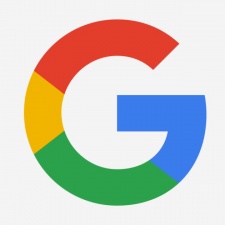In news that will come as little surprise for those who know more than a little about Google, it's looking likely that user data is going to be collected as part of the tech giant's new games business.
That's according to two patents filed in October 2018 by the mega-corporation for 'Notifications on a game controller' and 'Independent control of interactive streaming media', extensions of patents previously filed in 2014 and 2015 respectively. These are potentially part of whatever Google is planning on announcing at GDC next week.
The first patent is mostly discussing how a controller works, as well as how and what notifications will be related to the gamepad, while the second discusses the methodology of letting users interact with streaming media - primarily for video games. But both also give us a hint about Google's rather unsurprising data-centric endgame.
In both patents, Google says that users will be able to control what data is collected - if any - including their location and controller inputs. The company says that data may also be tweaked to remove "personally identifiable information".
It's worth noting that these patents might never come to fruition; companies file patents all the time and don't always follow through with products that use their registered inventions. However, the proximity of these patents being filed again to Google being set to announce what its games hardware and software ecoystem is going to involve means it's likely we'll see these enacted in one way or another.
"In situations in which the implementations of the disclosed subject matter collect personal information about users, or may make use of personal information, the users may be provided with an opportunity to control whether programs or features collect user information (e.g., a user's provided input, a user's geographic location, and any other similar data associated with a user), or to control whether and/or how to receive data from a provider that may be more relevant to the user," Google wrote.
"In addition, certain data may be treated in one or more ways before it is stored or used, so that personally identifiable information is removed. For example, a user's identity may be treated so that no personally identifiable information can be determined for the user, or a user's geographic location may be generalised where location information is obtained (such as to a city, ZIP code, or state level), so that a particular location of a user cannot be determined. Thus, the user may have control over how information is collected about the user and used by systems disclosed herein."
Similar language appeared in the patents when they were originally filed.
Asked for comment, a Google spokesperson said: "Patent filings aren't products, and may never be products, so we don't provide comment on these.
"Anyone who wants to know what data we collect on them for our products and why, can visit the Google MyActivity page, where they can also review their settings."
In a post-Facebook and Cambridge Analytica world, how big tech uses and - often - abuses personal data that it collects from its consumers is more of a concern than ever before. Google, especially, has been somewhat in the firing line when it comes to how it collects this information and whether it respects user privacy.
CEO Sundar Pichai appeared before the United States' House Judiciary Committee in December 2018 to discuss a variety of topics, including the company's approach to user privacy.
That was a few months before it was revealed that Google's new Nest Secure home security device featured a microphone which was not previously disclosed to users and didn't even appear on tech specs. The company has said that this was an, erm, "error".
While it'll be interesting to see a new player - and an established company no less - trying its hand at building a games ecosystem, that company's motives and endgames are something absolutely vital to keep in mind. As with everything Google does, it does seem that its games business could end up being an exercise in collecting data that it can sell on or use.


















